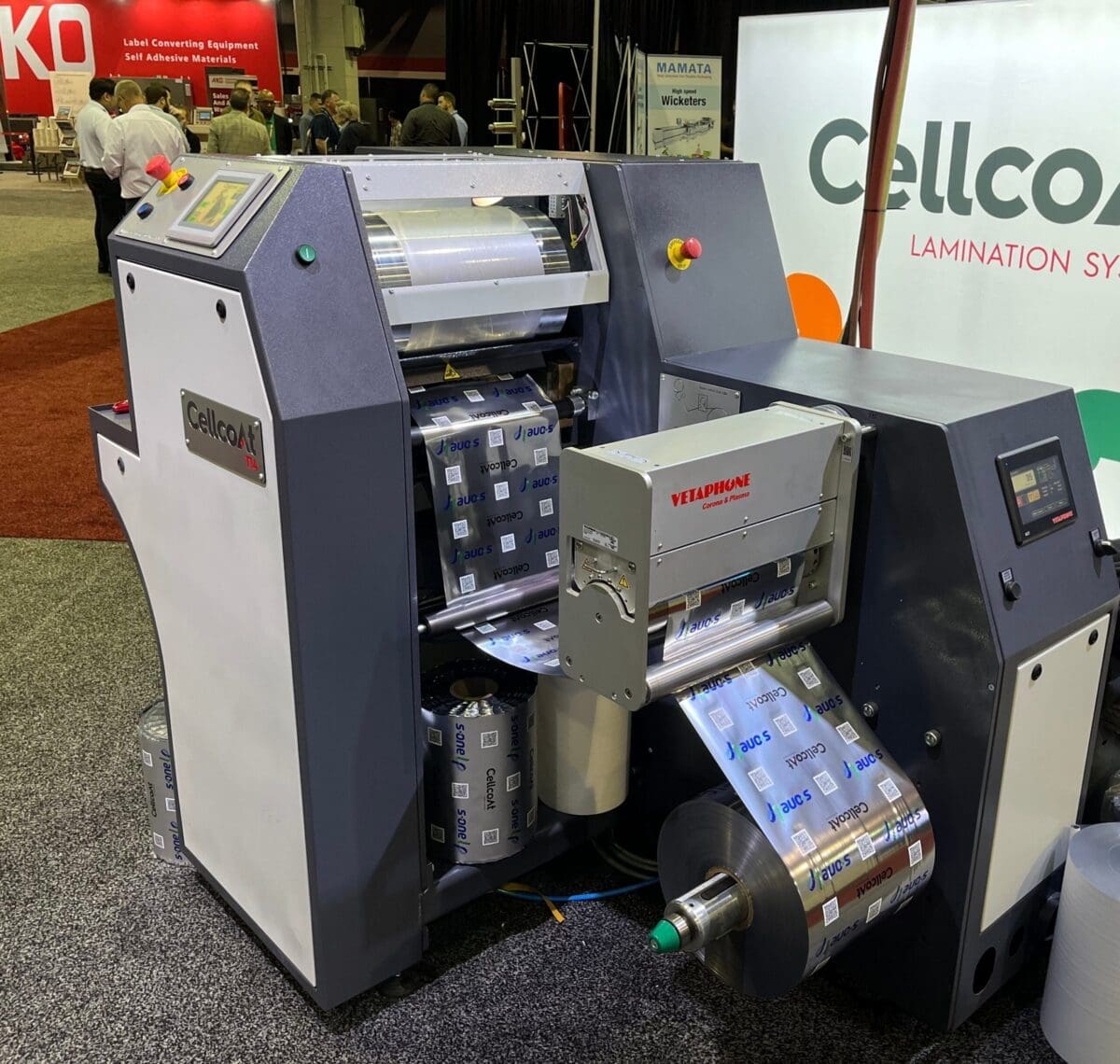Every so often one comes across a small company with specialised skills and a pioneering spirit that translates R&D projects into full blown commercial production capability – this one is called Cellcoat.
Founded in 1978 by Les Flint who was keen to develop the thermal lamination market, Cellcoat was subsequently acquired by Stephen Smith’s Printaply, an industry supplier that was looking to strengthen its expertise and grow the Cellcoat brand. The result is a company with more than 40 years of research into what is possible with laminate structures; resulting in the development of the Cellcoat T30 model, which the company firmly believes could help to solve the global issue of single-use plastic packaging.
Managing Director Jonathan Smith explains the background to Cellcoat’s business model; “We focus our skills on developing precision technology that assures quality and drives productivity. We are constantly looking to innovate, even if it moves us outside our comfort zone – but without innovation there’s no progress and to succeed in today’s world you need to be ahead of the game not playing catch-up. Learning is the bedrock of our success – after all, nobody has all the answers!”
Quality is a byword at the company’s headquarters in Sheffield, where an extensive range of thermal lamination machines are designed and manufactured, ranging from the compact T14 model with its accurate tension control and speed that make it suitable for digital, flexo and gravure print applications in the flexible packaging sector, up to the aforementioned T30, which is a fully modular line designed for industrial production of various packaging products including IML, pouches, labels, and sandwich packs.
With the use of filmic substrates and need for consistent performance, especially in the food sector, Cellcoat turned to Vetaphone for the surface treatment required. Contacted after a referral from HP, Jonathan found the Danish market leader in corona to have a great deal of synergy with his own company.
Founded by ‘the father of corona’ Verner Eisby in the years following the Second World War, just as plastic packaging was becoming more prevalent, Vetaphone has continued to pioneer surface treatment over the intervening seven decades and is the acknowledged global leader in the narrow and mid web sectors with a market share of more than 80% in the developed world.
“I saw in Vetaphone the same attention to detail and build quality that we value here, and an ongoing desire to develop technology that meets the requirements of a packaging market where changes in demand and the materials used are frequent. Just like Cellcoat, Vetaphone are ahead of the game,” he added.
In the eight years since the cooperative partnership first began, Cellcoat has fitted numerous Vetaphone corona systems to its laminators that have been shipped to customers around the world. The model chosen is the VE1A-M , which is designed specifically for narrow web applications and is accepted as the industry standard in corona treatment.
Which brings us to the question, ‘why thermal lamination’?
In a nutshell, it offers the three ‘E’s: excellent product performance, efficient production, and easy operation. Taking each in turn, Jonathan Smith summarised the benefits. “In terms of performance, it’s durable, food safe, good for hot fill, easily recyclable and offers a long shelf life. In terms of efficiency, you can add no cure time, low investment and operating costs, compact footprint with a short web path that reduces waste of expensive substrates, and finally it’s easy and clean to run, with no tricky adhesive ratio/coat weight calculations to make, and is non-polluting. I’d say that’s a ‘win, win, win!”
In addition to its roll-to-roll laminators, Cellcoat also offers a range of sheet-fed machines and is open to the challenge of bespoke models for specific or unique applications. “All our machines carry a global warranty and are supported locally, and that also fits well with the way Vetaphone looks after its customers. It’s vital that we have complete confidence in our supplying partners, which also include Dupont, Xeikon, Henkel, abg, mps, Teijin, Michelman and HP, without whose support we could not continue to grow our business.”

